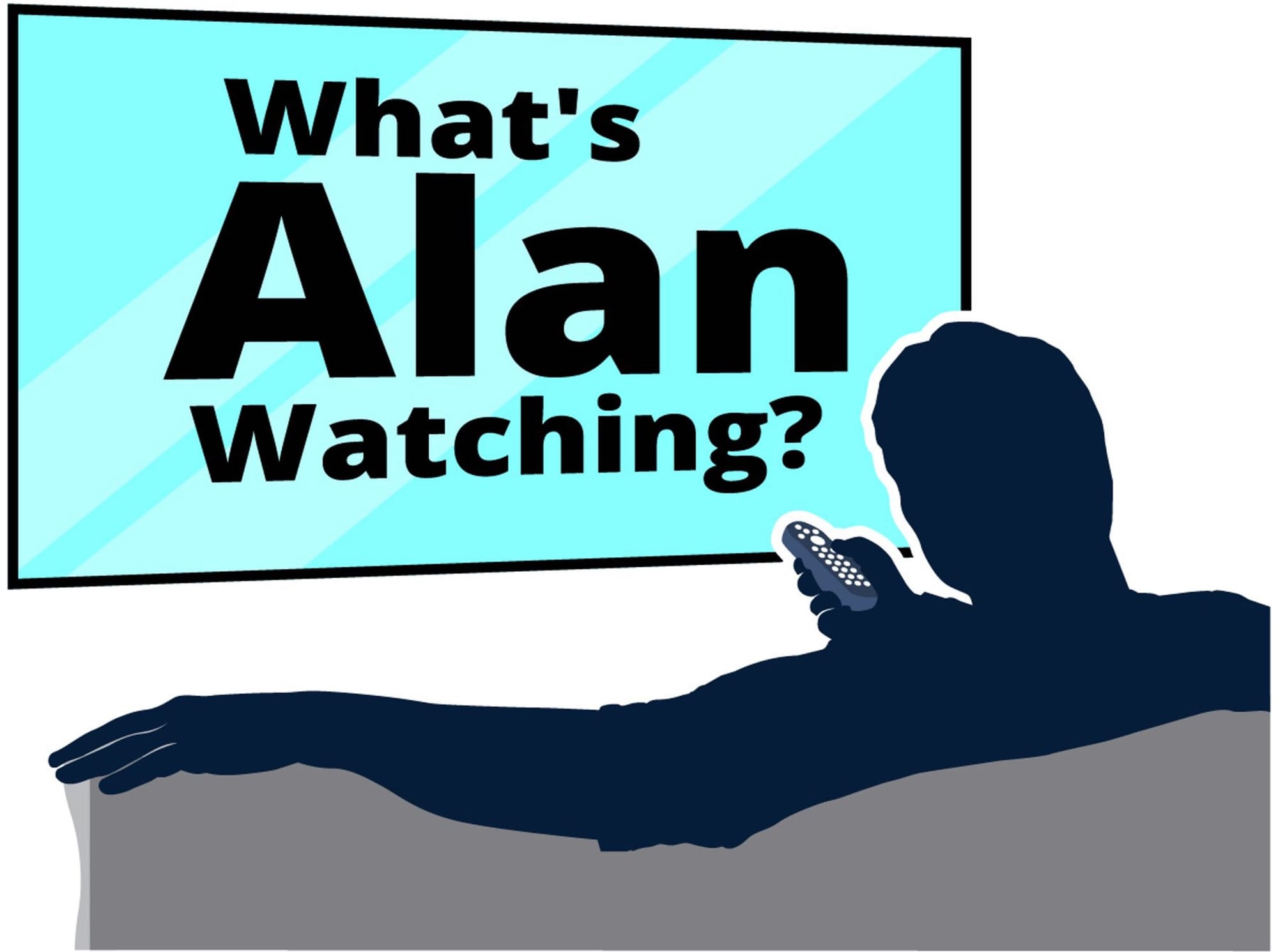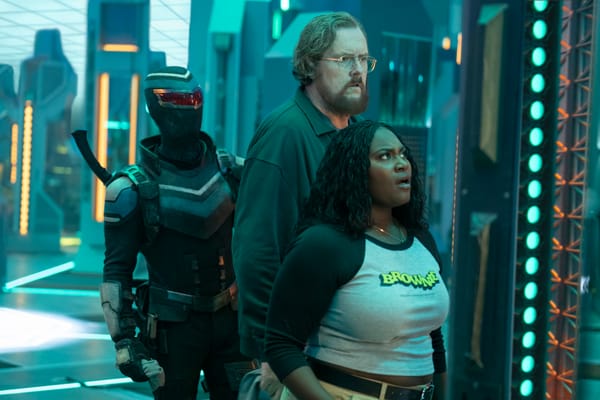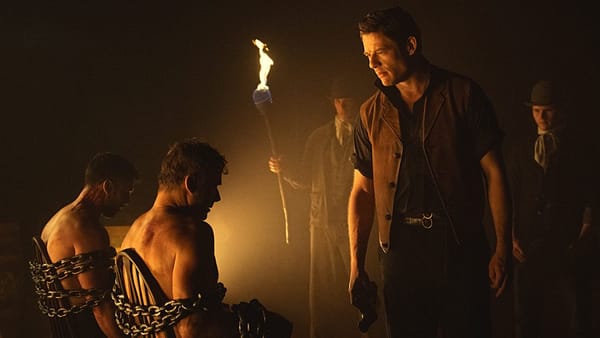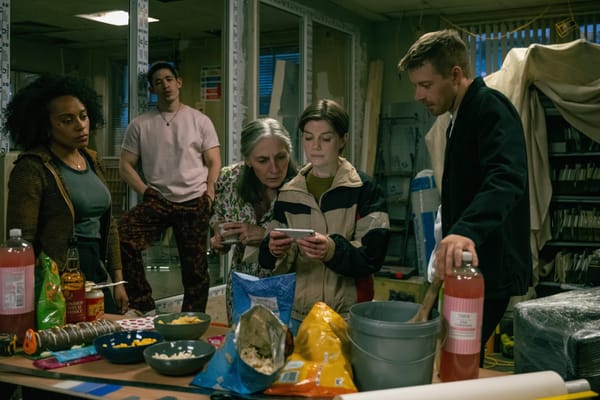What's the proper procedural? A conversation with Episodic Medium
Where do Case of the Week shows fit into the TV criticism game these days?
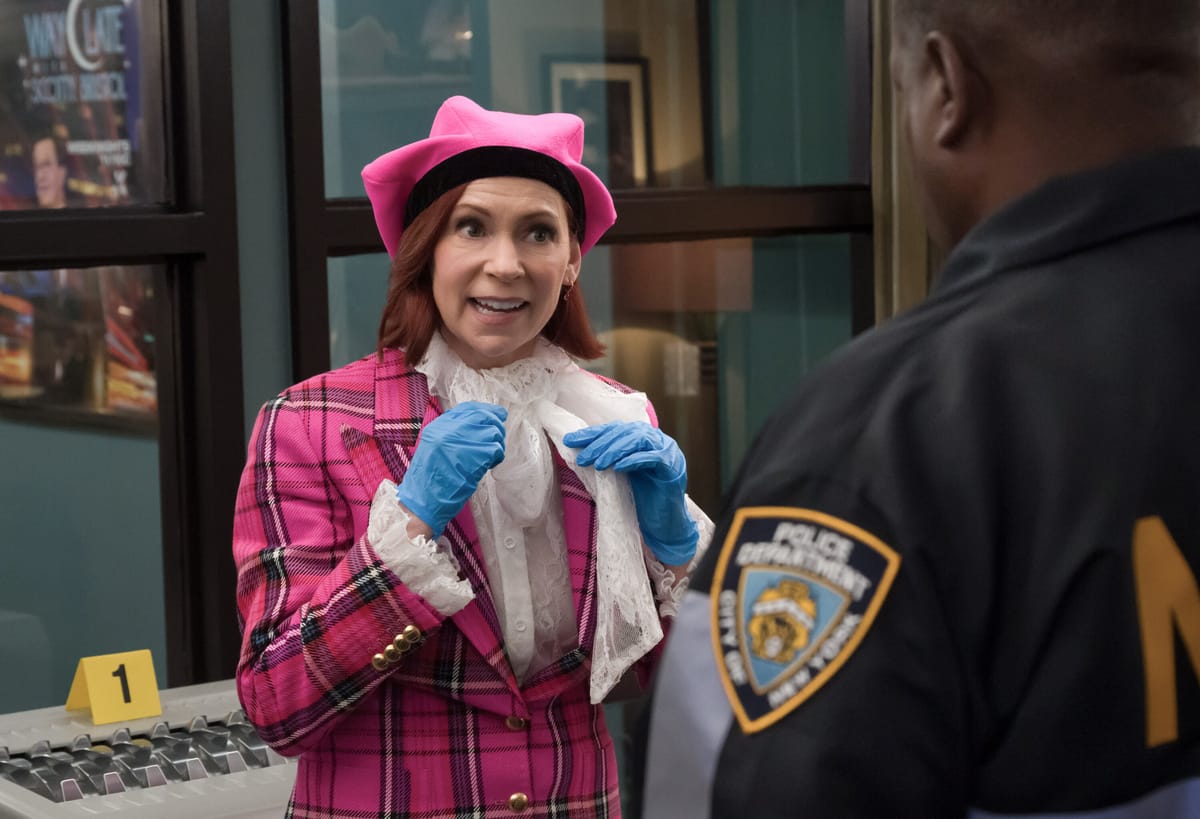
This is a conversation between Alan Sepinwall from What’s Alan Watching? and Myles McNutt from Episodic Medium. Because we’ve been covering TV online for so long, we couldn’t resist digging into the process of what kinds of shows we each cover. We’ll be talking about procedurals on What’s Alan Watching? and reality TV at Episodic Medium. In true procedural fashion, you can read them in any order you like, but it probably makes more sense to read this one second.
Myles McNutt: Alan, last fall you reviewed Matlock, and in your newsletter you noted that you would never have guessed going into the fall that it would be among the first shows you analyzed. You also wrote that “of the CBS procedurals that aspire to put in more than the minimum effort, I prefer Elsbeth, and even that’s a show I struggle to make time for.” And as we prepare at Episodic Medium to explore the place of the procedural within criticism, it made me wonder: where does the procedural as a genre fit into your TV diet these days?
Alan Sepinwall: My fears once again proved true, at least regarding those two shows. I watched a handful of Matlocks beyond the ones I saw when I wrote my review, but I don’t think I even made it to the Christmas episodes. And I saw maybe two or three Elsbeth Season Two episodes at the most. Not enough hours in the day, lots to review, etc.
But I do still watch a fair amount of procedurals, even if not all of them are as traditional about it as those two. We all know about my obsession with The Pitt, which takes the ER formula and makes it even more serialized by covering a single hospital shift over a whole season. Poker Face is lightly serialized, but executed at a much higher level than your average Case of the Week show. I was originally drawn to Star Trek: Strange New Worlds because it went back to the formula of the Kirk and Picard shows, where the ship visited a new planet each episode. (Its move away from that approach is among my frustrations with the most recent season.)
It will come as no surprise to anyone who’s been reading me for a while—but especially in these clunky years where Peak TV has gradually given way to wherever we are now—that I like TV that wants to be TV. Of all the kinds of dramatic shows out there, the procedural most clearly lends itself to functioning on an episode-to-episode basis, rather than aspiring to be a flabby, tedious XX-Hour Movie. I’m so happy that somebody like Rian Johnson would make a Poker Face, and to make it as well as he and his collaborators have for two seasons (and hopefully counting).
That said, work-wise, if given the option of sampling a new serialized drama versus a new procedural, odds are I’m going to pick the former. Hi. It’s me. I’m the problem. It’s me. The variance is much wider, and that often makes me more curious than checking back in with a show like Matlock that I know will at minimum leave me thinking, Yeah, that was solid.
There’s also the fact that I generally have more to say on a regular basis about serialized shows than I do about procedurals. That was already the case in the Blogspot days, and it feels even more true now. Maybe that’s just my interests as a writer. I don’t know exactly which shows I’ll be recapping going forward on What’s Alan Watching? beyond the current roster of Slow Horses, The Lowdown, the last few episodes of Peacemaker, and, starting in early November, Pluribus. But I suspect a lot of what I do in that vein will gravitate more towards the shows with ongoing stories.
Myles, which kind of show do you think lends itself better to episode-by-episode coverage?
MM: Last year, when I was planning out potential coverage for Episodic Medium, I thought about Matlock (which one of our contributors, Noel Murray, wrote about week-to-week for Vulture) very carefully. I had seen the pilot, attended the show’s TCA panel and set visit, and had gotten a chance to ask Jenni Snyder Urman about the roundabout approach to a reboot that the show took. It was clear that this procedural was doing things differently, and the idea of covering it seemed plausible.
But then I started thinking about the demographics of people willing to pay for deep dives into the shows they watch, and I balked at the idea that those people are also the ones watching procedurals. Or, rather, I wasn’t willing to take the risk of the overlap of those audiences. I had a similar conversation with Louis Peitzman about 9-1-1 (he also ended up writing about it at Vulture, this is turning into an ad for Vulture), and the simple truth is that budgeting for 20+ episodes of coverage without clear evidence that new subscribers would emerge is a different risk than a cable drama that maxes out at 10. (Case in point: I even hedged on The Pitt by turning them into shorter-form “Reactions,” although Emma Fraser couldn’t help but go longer than I expected once the show got its hooks in).
What’s frustrating about all this is that as someone who cut their teeth in the heyday of the episodic review/recap, I loved the idea that any type of show could benefit from this type of coverage. Beginning in 2012, I wrote about the first three seasons of CBS’ Elementary, and I relished exploring the balance between episodic stories and serialized developments, considering the formal qualities of a genre that I do think is too often dismissed as one-note. While this genre of writing tends to lean on thematic and narrative analysis, procedurals force you to really consider the way the structure of a story influences its telling, which is why a show like Poker Face ended up inspiring some great criticism (Josh Spiegel’s coverage at Episodic Medium, your capsule comments in your newsletter, etc.).
The problem is that I’m holding onto a moment that wasn’t even sustainable while it was happening: I remember having a lunch with Emily St. James, my editor at the time, where she quite plainly noted that we had Gone Too Far in our quest to review every show on television. But as I think back on it, what I should remember is that Elementary wasn’t the problem, drawing enough of an audience who were likely craving a more indepth consideration of a show that was being live-tweeted into oblivion or the talk of the watercooler. And given that following the whims of prestige TV led to crickets in the comment sections for shows like The Regime and The Sympathizer, a more populist approach may prove more advantageous than I had thought, which is part of why I agreed to let the aforementioned Josh Spiegel tackle combined Matlock and Elsbeth (ElsLock) reviews starting this fall.
Alan, I’m curious what the last real procedural (yes, The Pitt is cheating) you watched religiously—my gut says maybe The Good Wife? From your sampling, what’s your take on the state of the genre at this moment? Is there anything they could do to bring you back in?
AS: Doesn’t Poker Face count? What about all the Seventies episodes of Columbo I watched with my family during early Covid lockdown? But yes, the pre-Poker Face answer is probably The Good Wife, and that eventually became as much of a hybrid as The Pitt is now.
I don’t know that the genre has to do anything different, other than be done well. At my last job, I wrote a whole essay celebrating the fact that there were so many successful procedurals being made at the moment. I’ve periodically watched episodes of the two CBS shows, High Potential, even Doctor Odyssey (RIP). And I spent much of my treadmill time last year rewatching all of ER. (It helps that that show, like The Pitt, is more adrenaline-generating than something like Elsbeth, where I wind up going too slowly for it to be worth the bother.) When there’s one where I really like the main character, and/or where the stories are told exceptionally well, I’ll happily be there, watching and maybe writing. After all, one of the reasons I committed to weekly Poker Face coverage was that I felt I would be a hypocrite if I kept ranting about the death of the episode, then didn’t keep pointing people to a show that consistently demonstrated the importance of episodic values.
Is there a current procedural that you would suggest I go back and binge from the start?
MM: This is going to sound like crazy, but I don’t actually think that’s wholly necessary?
I know this seems counter to the reality of our binge moment, where streaming services make it possible to catch up on any show at any time. But there was once a time when the television procedural was explicitly designed as a show you could drop into, without the pressure of having seen every episode that preceded it. The fact that you can binge the first two seasons of Elsbeth before the third airs seems like a perk, but what if it’s a bug, insofar as it convinces people they need to do so in order to enjoy Stephen Colbert’s guest star role in the premiere?
While shows like Poker Face and The Pitt consciously draw on the appeals of the procedural, I’d argue—and in the latter case have argued with Michael Z. Newman—neither operates like one: the latter isn’t really episodic, and the former is still too serial for me to suggest that someone just drop in on a single episode without seeing how Charlie got to that point (nor would a viewer ever do such a thing with a show that isn’t airing in a linear capacity). Their appeals draw on what we like about procedurals, but they request/demand a more dedicated engagement befitting our serialized moment.
I watched the High Potential season two premiere with my boyfriend earlier this month: he had binged the first season while I was out of town, but I had only seen the pilot last summer. And honestly, I didn’t feel I missed a whole lot? Sure, there’s another twelve episodes out there for me to watch at some point, but between the “Previously On” and the requisite expositional dialogue, we might as well be on the same page. And to be honest, I did the same thing with Elsbeth, skipping most of the first season so I could stay current with the second. I only caught up on the earlier episodes when the season two finale brought back former guest stars, and even then I probably could have enjoyed the episode just fine without having seen the episodes in question.
No doubt procedurals—like all TV—are richer when you’ve seen all the episodes: there are nuances of character relationships, plus the light serialization that’s expected of the genre these days. But I’d encourage you or anyone to try on occasion to just watch them like they were historically experienced: as a standalone, episodic unit of narrative that airs at a specific time on a specific day, dependent less on context than on the simple pleasures of seeing a story begin and end. Maybe that creates a new treadmill show, or maybe you just see a fun guest star kill it—and someone—on Elsbeth and move onto the latest episode of a bleak serialized drama with a smile on your face.
AS: Okay, fine. You talked me into it.
[Warning: spectacularly out-of-date reference coming]
[Seriously. Really old. Most of you will not get it. That’s okay.]
[Extremely fake Redd Foxx on Sanford and Son voice]
This is the big one! I’m coming to join you, Elsbeth!
Myles and his contributors can be found at Episodic Medium, which is having its annual subscription drive. Through tomorrow, yearly subscriptions are 20% off. You can find out more here.
